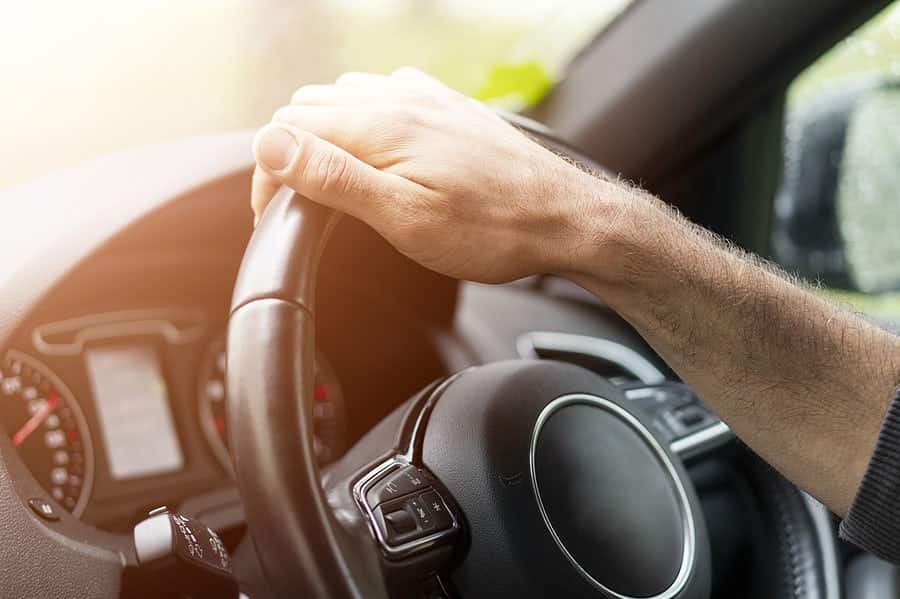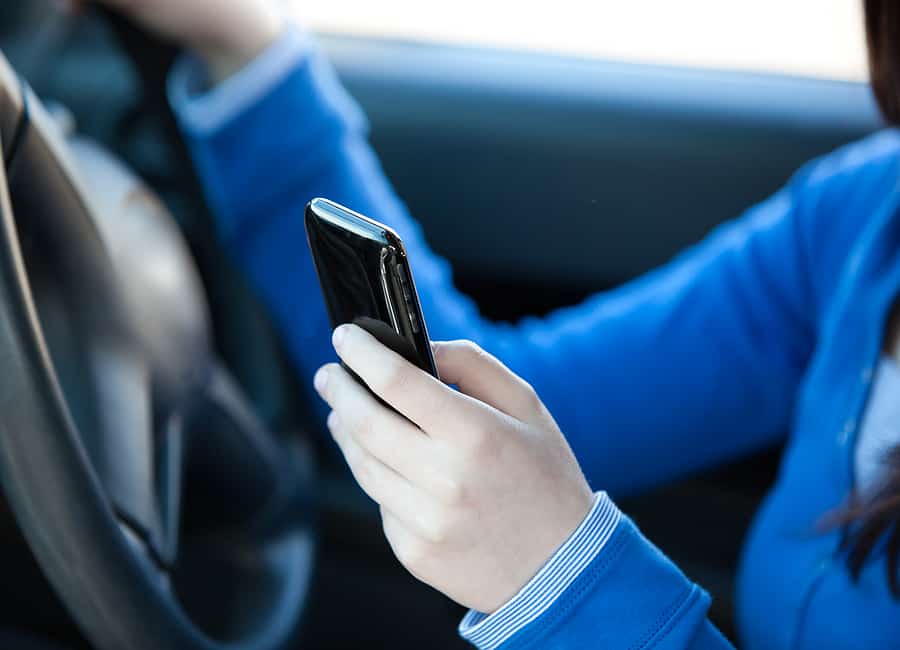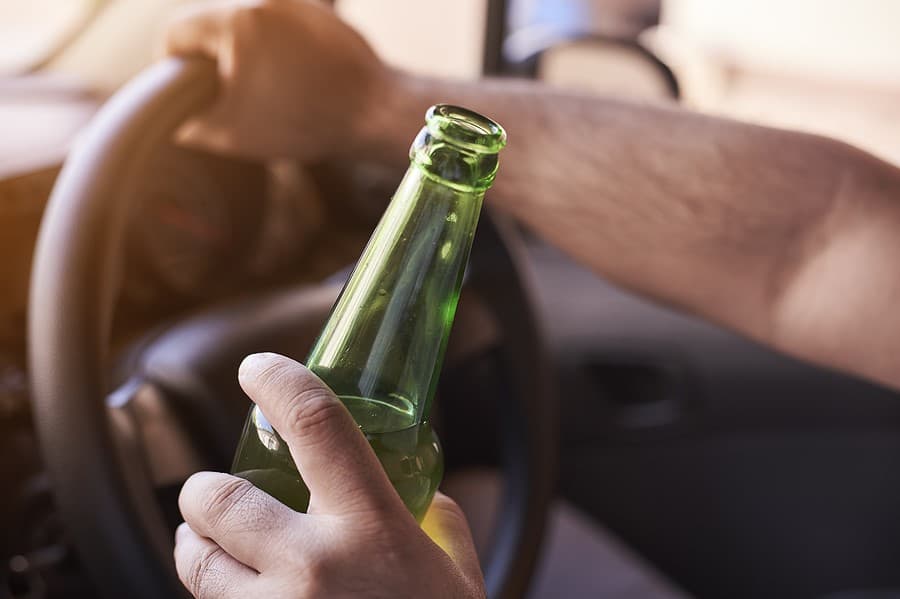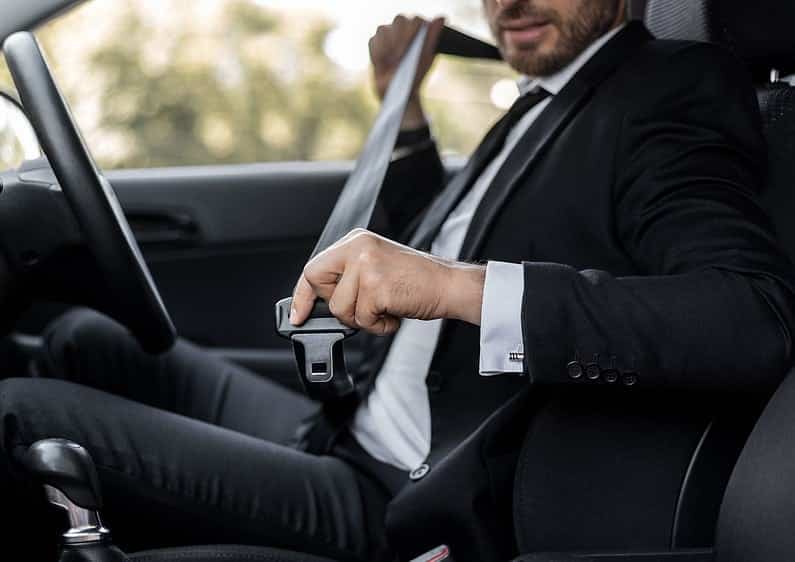
You’d think that most people in the UK would refer to The Highway Code when questioning the rules of the road. However, there’s still a surprising number of people who prefer to rely on hearsay and pub rumours, when operating out on the road. Usually these driving myths don’t apply to the big stuff, and are more focused on the lesser known rules. So which of these myths should be consigned to the bin of bad advice, and which are actually true?
Table of contents:
Gadgets behind the wheel
We live in an increasingly technologically powered age. Sometimes our new phones seem to be moving faster than the road laws. What’s the truth about using electronics behind the wheel?
Phone use
Phone use behind the wheel effects drivers’ reactions times to a greater extent than either marijuana or alcohol. If you want to use your phone whilst in the driver’s seat, then you’ll need to pull over and turn the engine off. Any other use is illegal. Additionally, you may be allowed to use headphones, speakerphones or a hands free kit, but if the police deem that operating this system is interfering with your driving, then you can still be penalised.

Sat Nav
Yes, you can use your phone as a Sat Nav. However, this must be held in a fixed position that does not impede your vision. You can reprogram a new route into your Sat Nav, but not whilst driving. Like the phone laws, it is illegal to interact with this electronic system whilst behind the wheel.
Headphones
Now you would probably think that using all your senses is an essential factor in safe driving on the road. You are actually allowed to have headphones in your ears, whilst in the driver’s seat, despite the fact that this may block out useful audio clues as to what’s happening outside the vehicle. We wouldn’t recommend wearing headphones – in fact, doing so could greatly increase your chances of having an accident.
Consuming
In our fast paced society, no one seems to have a spare moment. Many people like to grab a snack or drink for a driving journey. But is this behaviour strictly above board?
Eating and drinking
So many people like to have a morning coffee or a chocolate bar behind the wheel, it can’t be illegal, right? Well, even though all these people are on the right side of the law, the official advice however states that you mustn’t allow your focus to drift from the road onto your sandwich or drink. Our advice is to try to avoid eating and drinking behind the wheel, as driving should be your number one focus.
If the police believe your eating habits are getting in the way of your driving, then they can charge you with “driving without due care and attention”, which could result in you receiving a fine of up to £100 and 3 points on your license.
Smoking
Although many people have stopped smoking over the last decade or so of smoking bans in public places, you are still allowed to smoke in your vehicle. As long as you aren’t transporting children – as a law against this practice was introduced in October 2015. Again, if the police deem that your cigarette, cigar or even your vape is impeding your ability to drive safely, then you could be looking at a fine.
Alcoholic beverages

Whilst it is most definitely illegal to be in control of your vehicle after only a small number of alcoholic drinks (quite often a single one) – it is surprisingly not illegal for you to have open containers of alcohol in the vehicle. This is illegal in the US, which may be where the myth originates, but as long as the driver is neither drunk nor drinking from the open container, no UK law has been broken.
Driving behaviour
There are certain acts behind the wheel that are considered crass and rude. But at what point do these go from being simply undesirable to downright illegal?
Splashing pedestrians
You should go out of your way to avoid splashing pedestrians, as it’s simply bad form to put anyone through the pain of getting soaked by the side of the road. However, if the police see you splash someone, and they deem it to be deliberate, then you could be looking at a lot more than a wet pedestrian. Again, this can be considered driving without due care and attention, and could leave you the subject of a fine of up to £5,000, and up to 9 points on your license.
Driving too slowly
There are actually signs that denote the minimum speed on certain sections of road, which are shown in a blue circular sign, with the lowest legal speed displayed in the centre. There is not a legal minimum on motorways however, despite plenty of talk to the contrary. However, if the traffic police deem that your slower speeds are putting other drivers at risk, then they have the power to charge you with careless driving.
Flash warnings
You may be thankful of a driver who flashes their lights to give forewarning of police speed trap, however such behaviour is actually illegal. Yes, under rule 110 of The Highway Code, you are allowed to flash drivers to alert them of your presence, but any other attempt to convey a message, or intimidate other drivers, is not permitted. The charge would potentially be obstructing an officer, which could see a fine of up to £1000 being issued.
Your car
Your car’s condition and usage may also be the subject of a little controversy. Let’s clear up a few myths here:
Interior light
It’s not illegal for your interior light to be turned on, although this may impede your vision or even dazzle other motorists. If the police decide however that your light could be distracting you and other road users, they can advise you to turn it off, with a fine for non-compliance.
Seatbelts

Believe it or not, you do not actually have to wear a seatbelt whilst reversing your car, although the moment you put it into forward gear, everyone in the vehicle must under UK law, be wearing a belt, or you could face a fine of up to £500. If your car doesn’t have seatbelts in the back, then children over 3 must be in the back seat and no children under 3 are allowed in the car. Get everyone to buckle up before the journey starts.
Dirty plates
You may have heard rumours that dirty number plates are a good way to avoid getting caught by speed cameras, but there are actually rules that state your vehicle’s plate must be visible at all times. In fact you can even fail your MOT for having a plate that isn’t legible, and the police can issue a fine of up to £1000.
Asking passengers for money
Whilst there is nothing wrong with asking your pals to chip in for petrol money if you’re going on a long journey, or dropping them off at the airport, anything that’s starts looking professional is illegal. Running lifts as a business is illegal without the proper licenses, however tempting it might be to earn a few extra pounds from carting around friends and family.
Driving other people’s cars when fully comp’d
Want to drive someone else’s car with their permission? Normally if you have fully comp insurance then this is completely legal. However, if you are under 25, there may be other restrictions, especially if the car is unusual. Don’t make this an excuse to bother your friend into allowing you to drive his or her fancy motor however.
And finally
If you are ever in doubt about any road law then you can always check on the internet – or even your phone. Don’t accept the anecdotal advice of people you know when it comes to matters of safety behind the wheel. And also, there are some things on our list that might be legal, but aren’t that great. Just because you won’t get fined, doesn’t mean you should do it.







.png)